Blockchain Transparency in iGaming: Building Player Trust
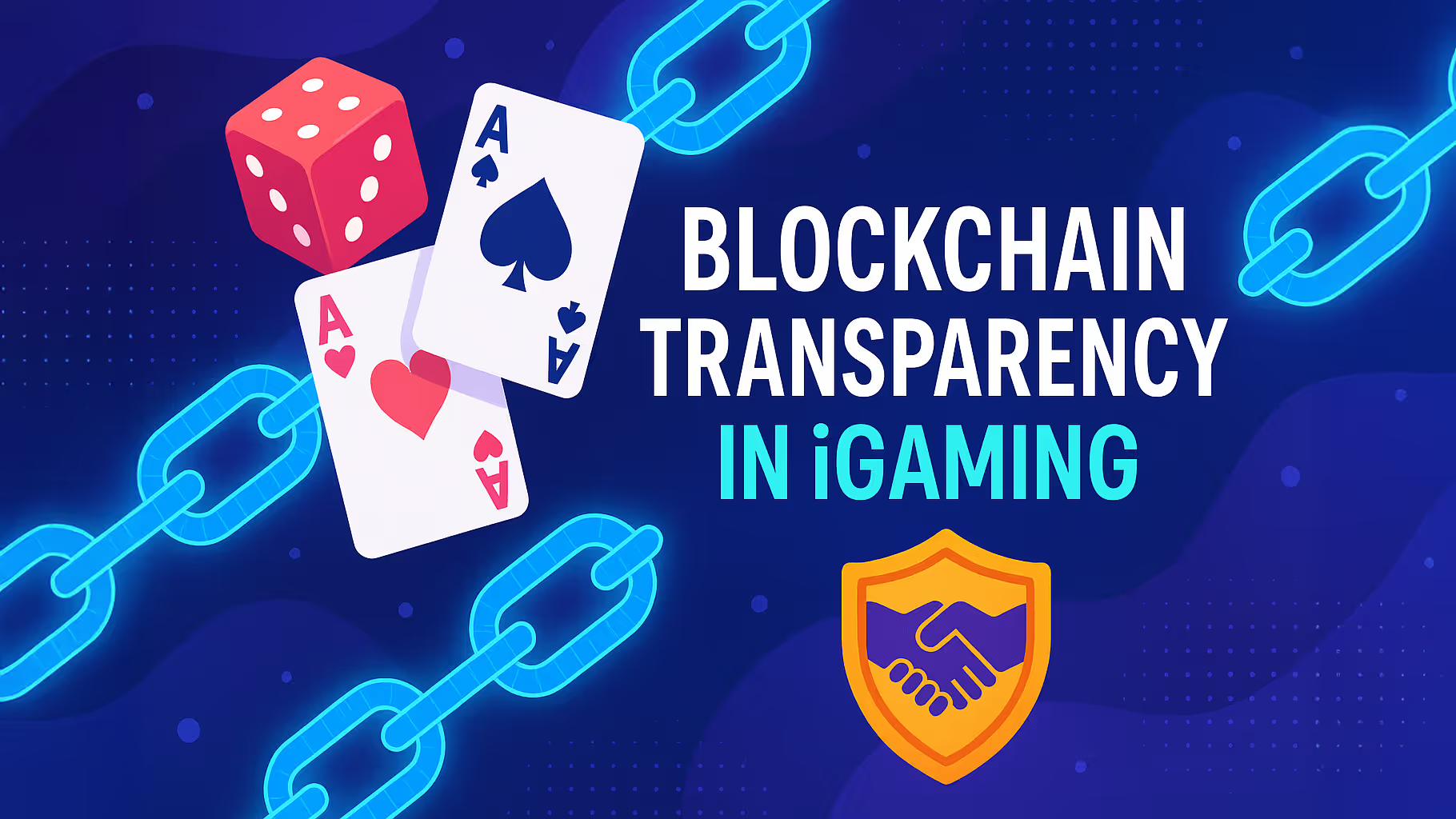
Modern players are justifiably getting tired of having to simply "trust" that everything's fair. And honestly, who can blame them? For years, we've been told the games are random and payouts are legit, but there's been no real way to check. That's where blockchain comes in, and it's changing everything.
Think of blockchain like a public ledger that nobody can mess with. Every bet, every win, every transaction gets recorded forever. And here's the best part - anyone can look at it. No more wondering if that slot machine really pays out what it claims. No more questioning whether your withdrawal will actually show up.
Why Players Don't Trust Traditional Online Casinos
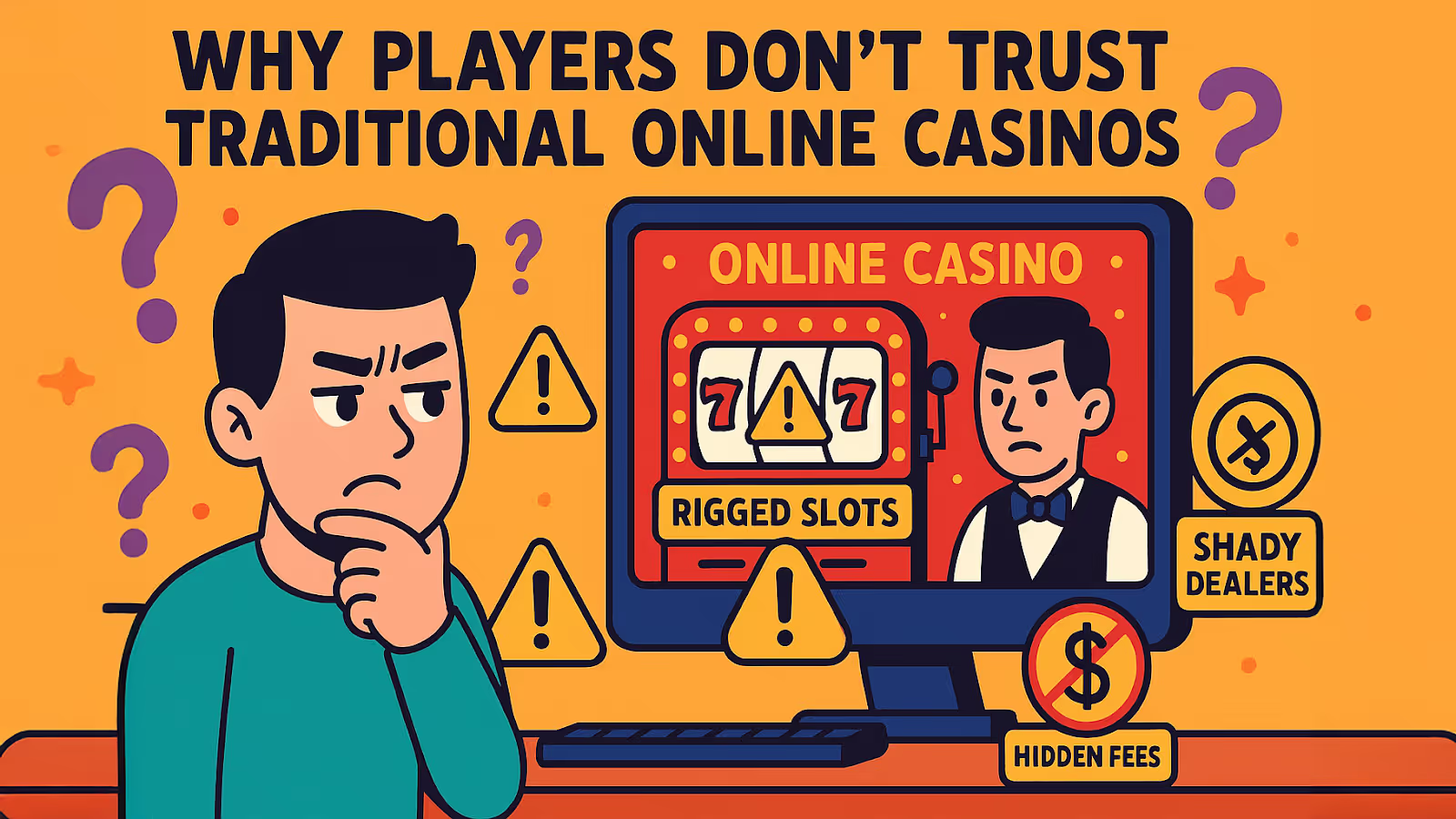
Let's be real here. Traditional online casinos have a trust problem, and it's not getting better. Players put their money down and hope for the best, but there's always that nagging feeling in the back of their mind. Are the games actually random? Is the house edge what they say it is? Will they really pay out big wins?
These aren't paranoid thoughts. Over the years, we've seen plenty of scandals where operators were caught doing shady things. When players can't verify anything for themselves, they're basically gambling twice - once on the game, and once on whether the casino is being honest.
The worst part? When something goes wrong, players often get the runaround. "Our systems show everything was correct," they'll say. But what systems? Players can't see them, can't verify them, and can't prove anything was wrong. It's like playing poker with someone who won't show their cards.
How Blockchain Actually Works in iGaming
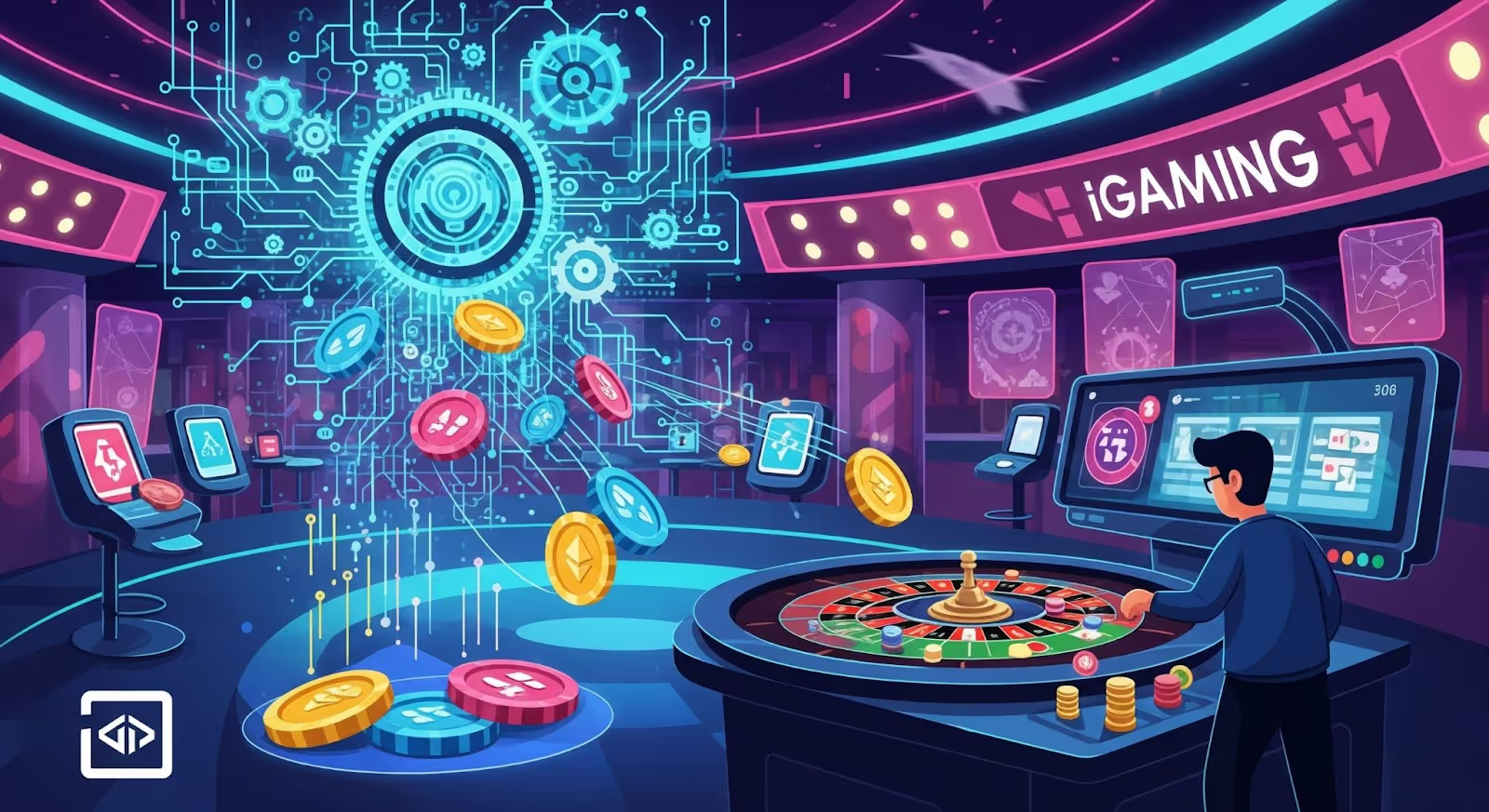
Now here's where blockchain iGaming platforms flip the script entirely. Instead of asking you to trust them, they give you the tools to verify everything yourself. This is basically, casino operations X-ray vision.
Games You Can Actually Verify
Remember those "provably fair" games you might have heard about? This is where that concept really shines. Before each game round starts, the platform creates what's called a server seed - basically a random number that will determine the outcome. They show you a scrambled version of this number (called a hash) before you play.
You also provide your own random input - your client seed. These two pieces combine to create the game result. After the round ends, they reveal the original server seed, and you can verify that everything was predetermined and couldn't have been tampered with.
It sounds complicated, but most platforms make it super easy. You just click a button, and it checks everything for you. No math degree required.
Every Transaction Lives Forever
Here's something that would make traditional casinos nervous: every single financial transaction gets recorded on the blockchain permanently. Your deposits, withdrawals, bets, and winnings all become part of this unchangeable record.
This means if a platform claims they pay out 97% of all bets, you can actually check that yourself. Players have started doing exactly that, and it's creating natural pressure for operators to be honest about their numbers.
The Real Numbers Behind This Movement
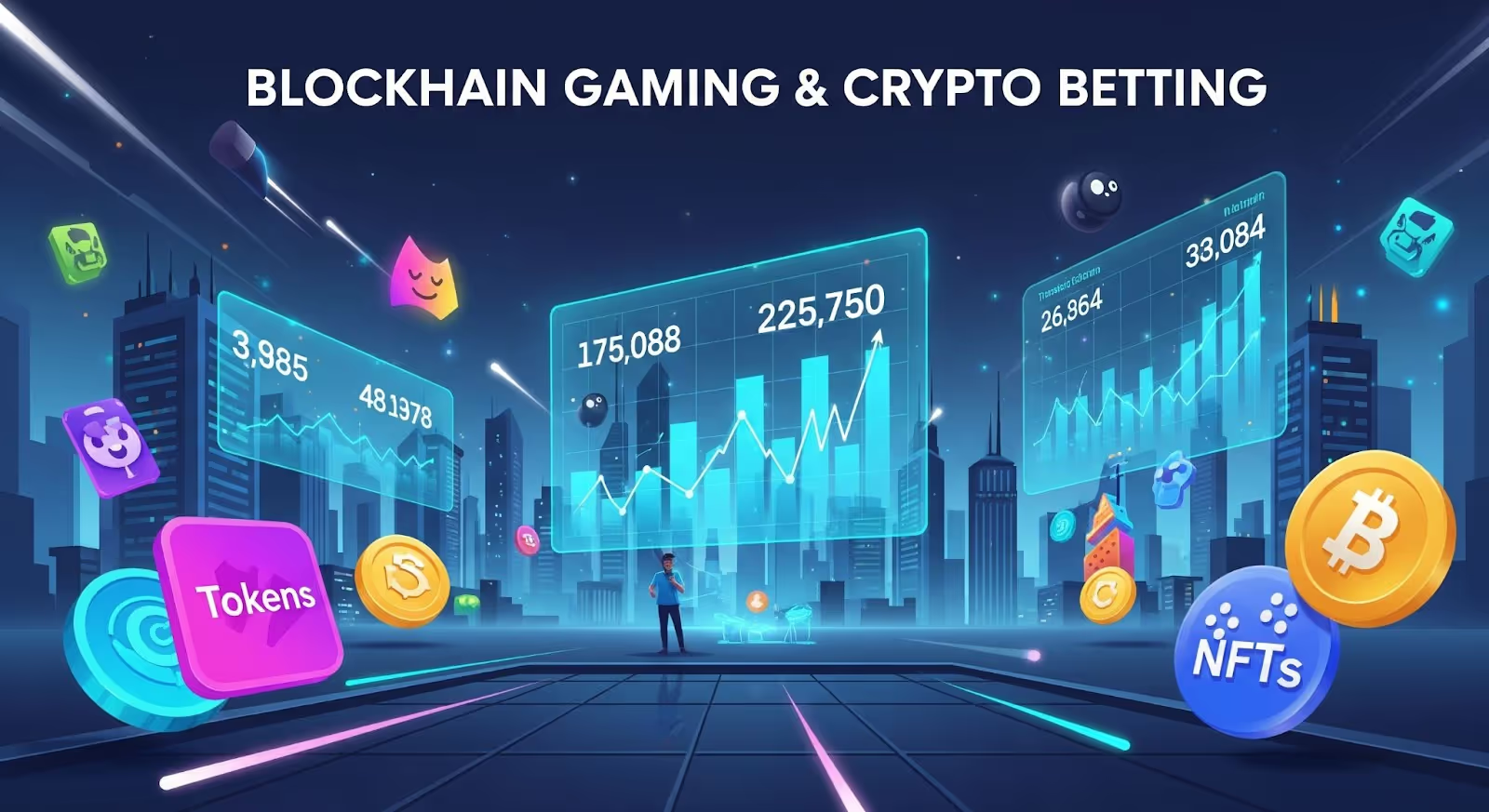
The growth in blockchain gaming has been pretty incredible. By the end of 2024, daily active wallets in blockchain gaming skyrocketed.
Crypto-based betting now nears 30% of all iGaming wagers. We're talking about platforms handling over $8 billion in monthly bets. The total crypto gaming market jumped from $50 million in 2019 to $250 million in 2024. Those aren't small numbers anymore.
What's driving this growth? Players are experiencing what it's like to actually verify their games are fair, and they're telling their friends about it. Once you've played on a platform where you can check everything yourself, going back to traditional "trust us" casinos feels pretty backward.
{{cta-banner}}
7 Ways Blockchain Actually Helps Players
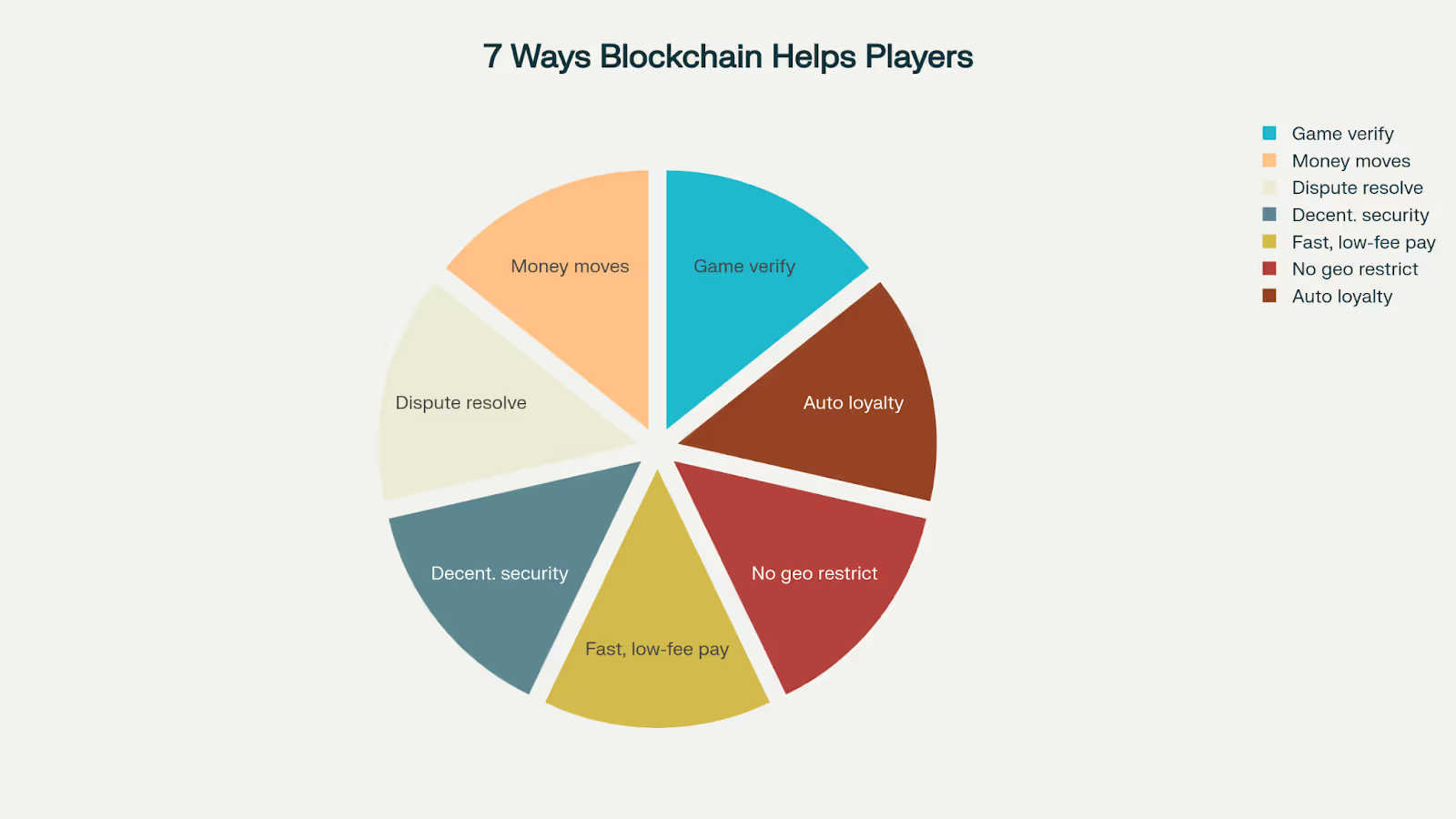
1. You Can Check Every Game Yourself
No more wondering if that slot machine is rigged. With blockchain platforms, you can verify every single spin, card dealt, or dice roll. It takes seconds, and you don't need to be a tech expert to do it.
2. All Money Movements Are Visible
Every transaction happens on a public blockchain. If you want to see whether a platform has enough funds to pay out winnings, you can check their wallet yourself. Try doing that with a traditional casino.
3. Disputes Get Settled Fast
When everything's recorded on an immutable ledger, there's no he-said-she-said when problems come up. The blockchain shows exactly what happened, and support teams can resolve issues quickly instead of spending days investigating.
4. Better Security Through Decentralization
Traditional casinos are single points of failure. If their servers get hacked, everyone's in trouble. Blockchain platforms spread the risk across multiple nodes, making them much harder to attack successfully.
5. Payments That Actually Work
Cryptocurrency transactions usually clear within minutes, not the days you might wait for traditional banking. And the fees are typically much lower, especially for international transfers.
6. No Geographic Restrictions
Blockchain platforms can accept players from anywhere without the banking restrictions that limit traditional operators. This creates bigger player pools and better game variety.
7. Automatic Loyalty Programs
Smart contracts can manage complex reward systems without human error. Your loyalty points, bonuses, and rewards get distributed automatically according to predetermined rules that you can actually read.
The Challenges Nobody Talks About
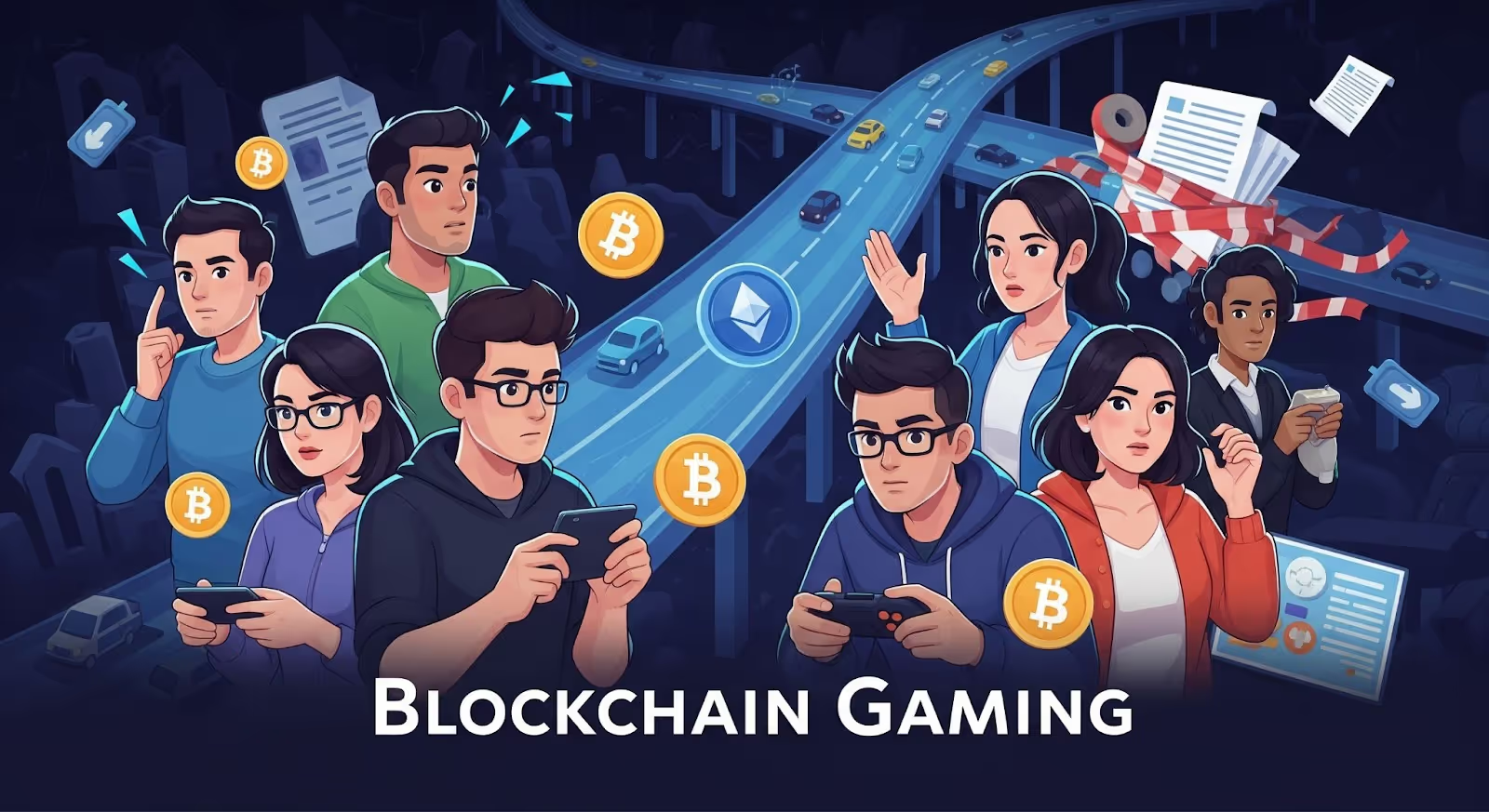
Of course, it's not all sunshine and rainbows. Blockchain gaming has some real challenges that operators need to deal with.
Regulations Are Still Messy
Different countries have wildly different rules about cryptocurrency gaming. Some places embrace it, others ban it outright. Operators have to navigate this patchwork of regulations carefully.
Most Players Are Still Learning
Let's face it - a lot of people still don't understand how cryptocurrency works, let alone blockchain gaming. Platforms need to invest heavily in education and create interfaces that feel familiar to regular players.
Network Congestion Can Be Annoying
When popular blockchain networks get busy, transactions can slow down and fees can spike. It's getting better with new technologies, but it's still something players notice.
Price Swings Affect Everything
Cryptocurrency values can bounce around quite a bit. Some players love this volatility, but others find it stressful. Many platforms now offer stablecoin options to address this concern.
What's Coming Next

The trend toward blockchain transparency in iGaming isn't slowing down. We're seeing traditional operators start to integrate blockchain elements into their existing platforms. They're using it for things like random number generation, transaction verification, and loyalty programs while keeping familiar interfaces.
AI is also starting to play a bigger role. These systems can analyze blockchain data in real-time to spot unusual patterns, optimize game performance, and provide better customer service - all while maintaining complete transparency.
The integration of AI with blockchain promises even more transparency. AI can analyze the blockchain data to detect anomalies, predict player behavior, and optimize platform operations while keeping everything visible and verifiable.
Smartico.ai: Making Transparent Gaming Actually Work
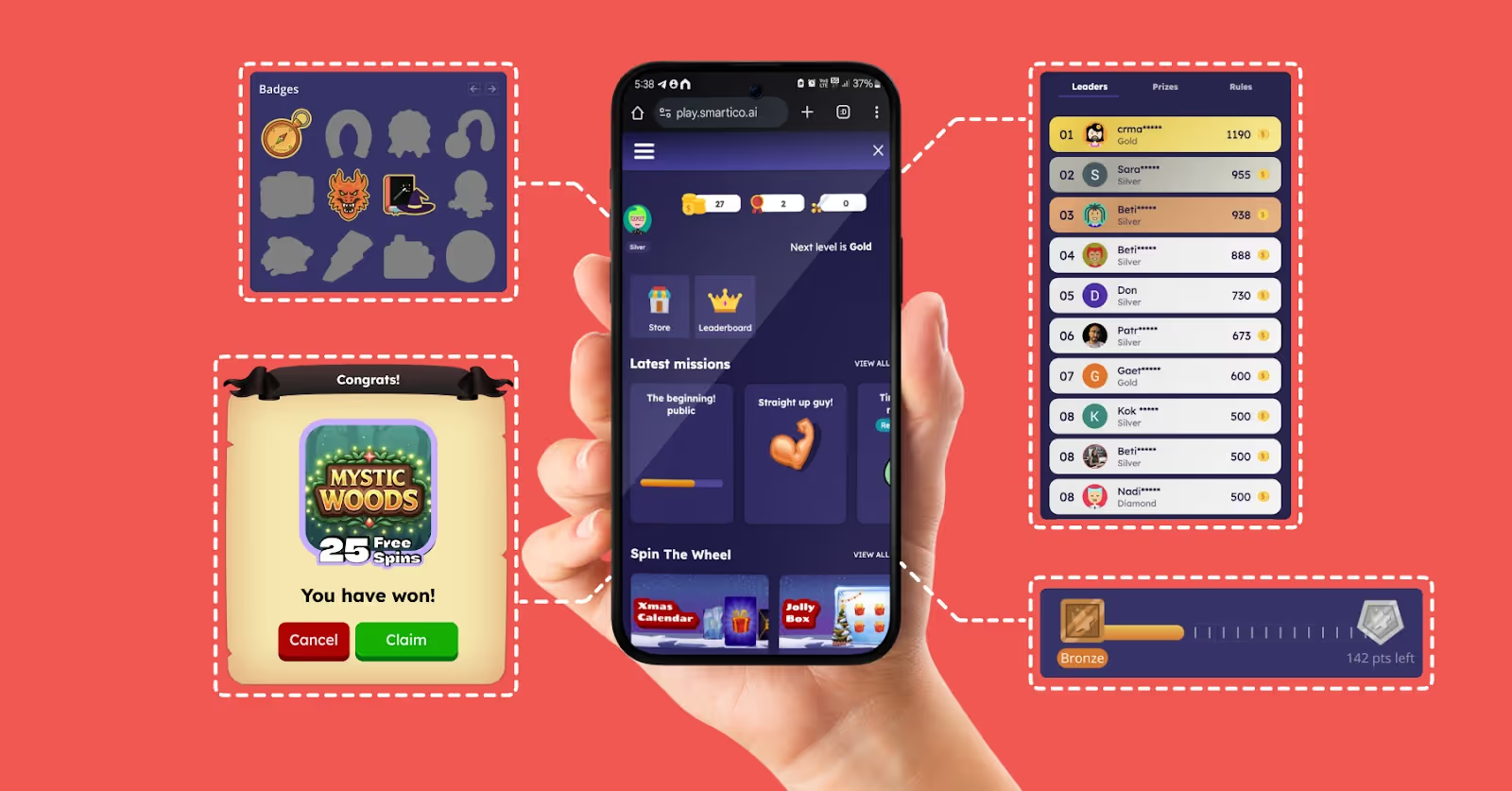
Speaking of making things work better, this is where platforms like Smartico.ai come into play. We've built the first unified CRM and Gamification platform specifically for the iGaming industry, and understand how to make blockchain transparency work alongside great player experiences.
What makes Smartico.ai different is that we don't see transparency as something that gets in the way of engagement. The platform integrates easily and smoothly with blockchain iGaming platforms to provide transparent, automated player engagement. The AI analyzes player behavior in real-time, but everything about how rewards and bonuses are calculated remains completely visible to players.
The gamification features - missions, tournaments, loyalty programs - all operate on algorithms that players can understand and verify. Instead of mysterious "black box" systems, players can see exactly how their rewards are earned and distributed.
With more than 1,000 brands worldwide, Smartico.ai has proven that you don't have to choose between transparency and sophisticated player engagement. It shows that when you combine blockchain transparency with smart CRM tools, you get the best of both worlds.
For operators who want to embrace blockchain transparency without sacrificing player engagement, Smartico.ai offers exactly what's needed. Its unified approach ensures that transparency enhances rather than hinders the player experience.
Blockchain technology represents more than just a tech upgrade for iGaming. It's about giving players the power to verify what operators have been claiming all along. Instead of "trust us because we said so," it's "here's the proof - check it yourself."
As players get more comfortable with this tech, the pressure will mount on traditional operators to offer similar transparency. The future belongs to platforms that can prove their fairness rather than just promise it.
The combination of blockchain transparency with smart player engagement tools creates something special. Players get the confidence that comes from verifiable fairness, while operators get the tools they need to build lasting relationships with their customers.
Book your free, in depth demo below, and find out how Smartico can help your business specifically get those revenue numbers up like never before.
{{cta-banner}}
FAQ
- What exactly is provably fair gaming?
It's a system where you can verify that game outcomes were determined fairly using cryptographic proofs. You don't have to trust the operator - you can check the math yourself. - How does blockchain make payments more secure?
Every transaction gets recorded on an immutable public ledger. This makes it impossible to alter payment histories or hide transactions from players. - Can traditional casinos add blockchain features?
Yes, many operators are taking hybrid approaches. They're adding blockchain elements like transparent random number generation while keeping familiar user interfaces. - What are the main problems with blockchain gaming platforms?
The biggest challenges are regulatory uncertainty, the learning curve for new players, occasional network congestion, and cryptocurrency price volatility. - How do smart contracts ensure games are fair?
Smart contracts automatically execute predetermined rules without human intervention. This removes opportunities for manipulation and ensures rules are applied consistently. - Is blockchain gaming legal where I live?
It depends on your location. Some regions have embraced crypto-based gaming, while others have restrictions. Always check your local laws before playing. - What cryptocurrencies work best for gaming?
Bitcoin, Ethereum, and Litecoin are the most popular choices, accounting for about 95% of crypto gaming activity. Many platforms accept multiple currencies. - How can I verify if a blockchain casino game was fair?
Most platforms provide easy-to-use verification tools. You just need to click a button, and the system checks the cryptographic proofs for you - no technical knowledge required.
Did you find this article helpful? If so, consider sharing it with other industry professionals such as yourself.
Ready to use Smartico?
Join hundreds of businesses worldwide engaging players with Smartico.










